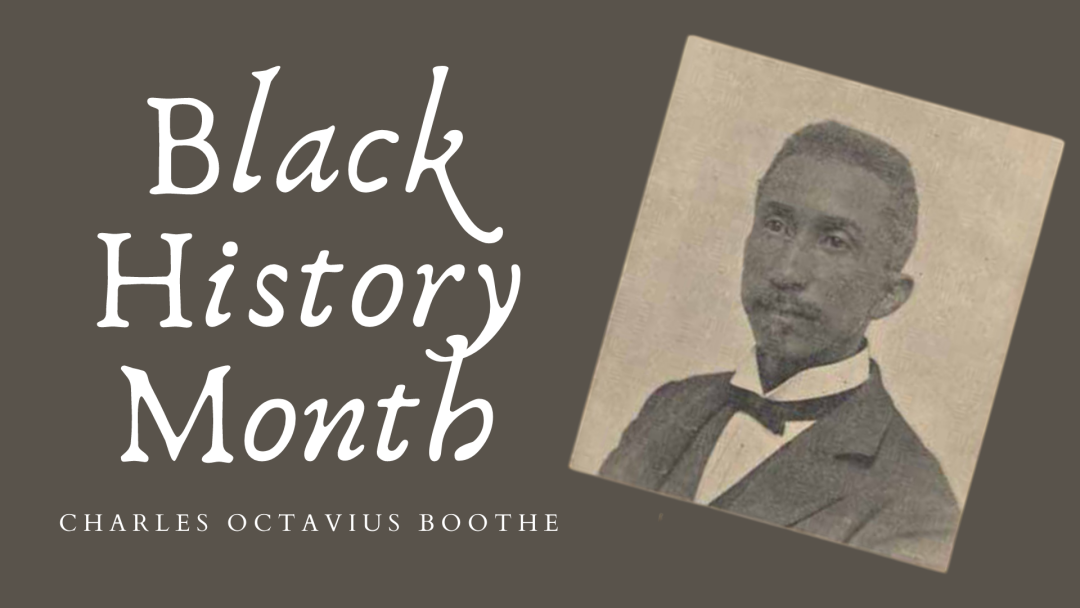
For some, studying theology can be an overwhelming prospect. After all, theologians have developed a sophisticated and specific language to make sure that when we talk about God, we speak accurately. For someone who’s just beginning to dive deeper, this can be daunting. Charles Octavius Boothe recognized this, and in one of his only surviving works, “Plain Theology For Plain People” he set about the task of explaining the riches of Christianity for those who didn’t have access to formal academic training: slaves, sharecroppers, and deacons and leaders in the black church who had been denied an education.
Boothe was born into slavery in Mobile Alabama on June 13th, 1845. From a young age, he encountered teachers who taught him to read in secret by scratching letters onto a tin plate. Due to his ability to read, which was illegal at the time, Boothe was able to work as an errand boy in a law office. It was here that he began to study the Bible in-depth which ultimately led to his conversion. With the end of the civil war and the emancipation proclamation, Boothe found himself a free man.
Sensing a strong calling to ministry, he began to immerse himself in books of theology. But the authors assumed their readers shared an academic background that had been denied to Boothe through slavery. Without a teacher, he found that the progress he made was, “Slow and tedious.” None the less, he was placed in charge of training Ministers and Deacons, many of whom had even less access to education than he had. It was out of this need that, “Plain Theology For Plain People” was born. Over years of in-depth study, Boothe had come to grasp some of the more difficult theological concepts, but he wanted to help the Christians that he was training understand things without battling through the academic jargon. Recently reprinted, “Plain Theology” demonstrates a deep understanding of Christian beliefs, and Boothe's sincere love of the Bible. Every page is saturated with scripture references, and rich theology articulated clearly and simply.
Throughout his life, Boothe would remain a harsh critic of slavery and a tireless advocate for justice. Walter Strickland notes that many white Christians defended the practice of slavery because they believed that God had used slavery to introduce black people to the gospel. Over and against this, Boothe informed white Christians in the south that the gospel had taken root among slaves despite their oppression, not through it. In his efforts to oppose segregation, he labored to see greater literacy in the black community. After all, Boothe knew that if they read the Bible for themselves, they would see the error of the slave masters, who used scripture selectively to justify their abuse. Boothe knew that the God was on the side of the oppressed, not the oppressor.
His ministry led him to establish and pastor two different churches, "First Colored Baptist” in Meridian, Mississippi, and "Dexter Avenue Baptist" in Montgomery, Alabama. The latter of which would go on to be led by another towering figure in the black church tradition, Dr. Martin Luther King Jr.
We have little written by Boothe, and only know vague details regarding the last few years of his life. But what we do know is that he was a man marked by wisdom, integrity, and a deep love of both scripture and the God who inspired it. Boothe devoted his life to seeing the truth about God explained in a way that people could understand, especially those who had been the victims of racism and injustice. Fortunately for us, at least one of his works has been preserved and reprinted, which gives us a window into the life and thinking of this incredible saint. For those who are interested in learning from one of the church's great leaders, there’s no better place to start than, “Plain Theology For Plain People.”
*In this brief sketch of Boothe's life and ministry, I've relied heavily on Walter Strickland's introduction to, "Plain Theology For Plain People." For those interested in learning more about Boothe, I'd highly encourage you to take a look at Strickland's work
